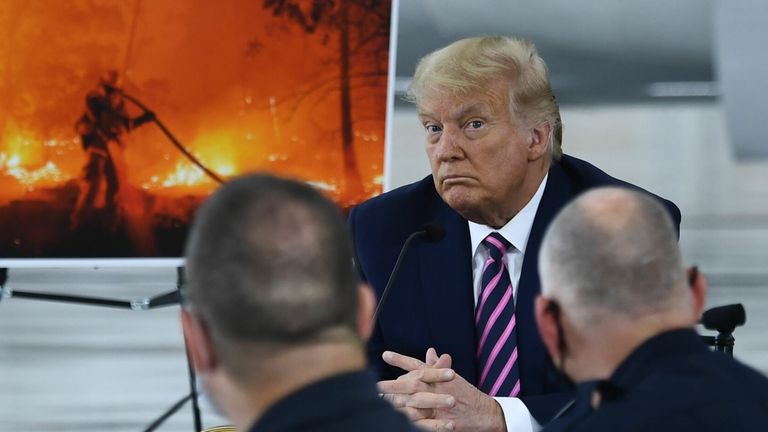Facebook has launched a climate science information centre to promote authoritative voices on climate change following wildfires in the US and criticism of the platform for allowing misinformation to spread.
However, the company will continue to permit false information about climate change to be posted and promoted by politicians, as well as excluding opinion articles from its normal fact-checking processes.
Sir Nick Clegg, the former deputy prime minister and Facebook‘s global policy chief, told reporters that the company would continue exempting false claims about climate change posted by politicians.
“No social media company has ever tried to do so for the simple reason that political speeches always are characterised by exaggerations, selected uses of statistics, and exaggerated claims of virtues from one candidate and vices of others,” he said.
It follows dramatic wildfires across the west coast of the US, where the company is based, which have killed more than 30 people as they spread across the states of Oregon, California and Washington.
The information centre project is similar to the information centres Facebook has launched for COVID-19 and the US elections, topics which the company has also acknowledged there was a substantial amount of disinformation around.
It comes as the company pledges that its global operations will meet a net zero carbon emission target and be completely powered by renewable energy by the end of this year – and aims for its supply chain to reach net zero carbon emissions in 2030.
The information centre will provide “factual resources from the world’s leading climate organisations, including the Met Office in the UK, and steps people can take in their everyday lives to combat climate change”.
Facebook explained that it prioritises tackling misinformation that poses an immediate threat of harm, such as fake cures for coronavirus or hate speech which could incite violence.
Last month the company deleted a post by Donald Trump which included the false claim that children are “almost immune” from COVID-19.
The US Centres for Disease Control and Prevention published a study in April, involving 2,500 children, which found about one in five needed hospital treatment compared with one in three adults.
A global review of dozens of studies also said children’s role in transmission was unclear but that “it seems likely they do not play a significant role”.
“COVID-19 appears to affect children less often, and with less severity, including frequent asymptomatic or subclinical infection,” concluded the study – done in partnership with the Royal College of Paediatrics and Child Health.
According to Chris Cox, the head of the coronavirus information centre, more than 600 million people have clicked on the tool, which the company’s executives consider a success.

